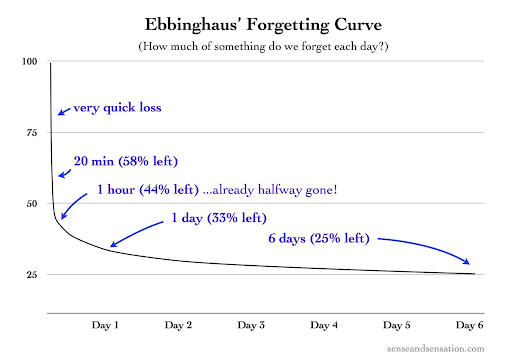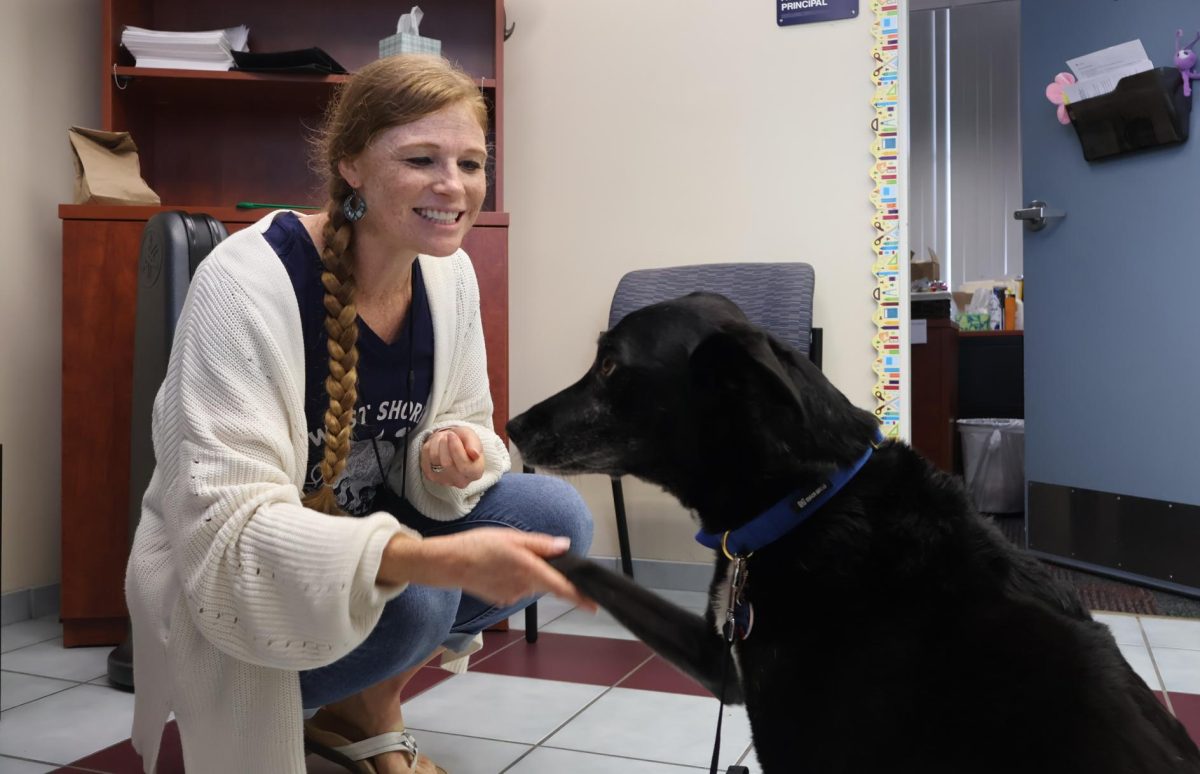Taking AP exams months after courses end requires strategy changes

January 19, 2021
Junior Elise Chauvin, who was enrolled in three Advanced Placement classes during fall semester, looked ahead to May when she will take her final AP exams for the classes she finished last week.
“I don’t think I will do as well on the exams from this semester because of the time between the class and the test,” Chauvin said. “I feel like I will just forget all of the information from class. Hopefully with the AP prep class, I can go over all of it and do well though.”
Chauvin will be tested on AP Government, AP Economics and AP Language and Composition. She said she plans rely on more than her memory to help her pass the exams.
“[This] semester I’m going to be going through my notes and studying with my friends,” Chauvin said. “I’ll probably study like once every two weeks and then, when it gets closer to the national exams, I’ll look through my notes a lot more.”
German psychologist Hermann Ebbinghaus proved that the average person forgets information at an exponential rate, and if they are not actively trying to retain it, about 90 percent will be lost within a week. In other words, upon learning something, people promptly forget most of it, showcasing the disadvantages of cramming for tests.
“I think that a lot of kids are going to blow it off until May,” Chauvin said. “I’d rather avoid that stress and just study throughout so I don’t have to panic later.”
AP Government and Economics teacher Bob Sarver said the postponed exams are nothing new for his AP students.
“I’ve had the same issue in prior years because I had AP Government in first semester and AP Economics in second semester and half the students didn’t see the subjects for four to five months,” he said. “It just depends on the students. If they want to pass the test, there’s a bunch of material that they can review.”
Sarver provided his students with voluntary practice assignments on all of the material for his students on AP Classroom, which they will have access to from now until the national exam.
“I haven’t seen any big difference [of scores from first and second semester] in the past, except for the people who actually want to study,” Sarver said. “I don’t think [the time in between the class and the exam] will make that much of a difference.”
He said that the block schedule has been a lot easier for him, but it’s difficult to fully cover the same material in fewer days.
“It’s half the classes and essentially half the work,” he said. “This is the easiest year I’ve ever had. I won’t make any changes in the lesson plans [next semester], but I will be more conscious of the quick pace of things and how the number of days is lessened. So I’ll be able to cover the material better I hope.”
He suggests students spend some time every week reviewing the information they learned during fall semester.
“If they don’t do that,” he said, “it’s going to be really difficult to try and cram it all in their heads the week before.”



![Sophomore Isabelle Gaudry walks through the metal detector, monitored by School Resource Officer Valerie Butler, on Aug. 13. “I think [the students have] been adjusting really well," Butler said. "We've had no issues, no snafus. Everything's been running smoothly, and we've been getting kids to class on time.”](https://westshoreroar.com/wp-content/uploads/2025/08/IMG_9979-1200x800.jpg)











































